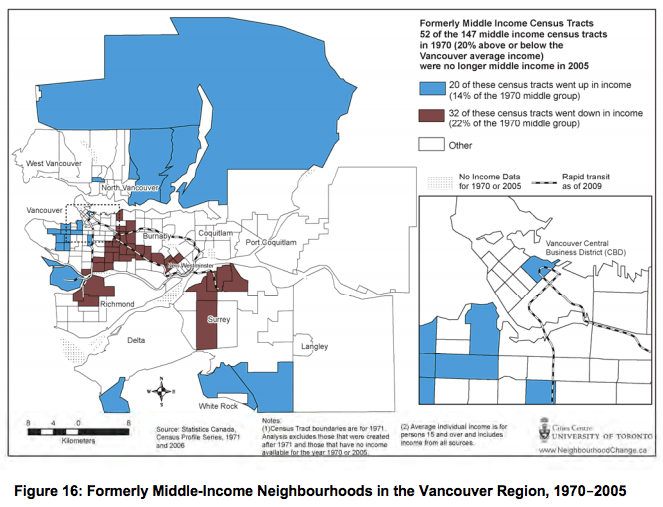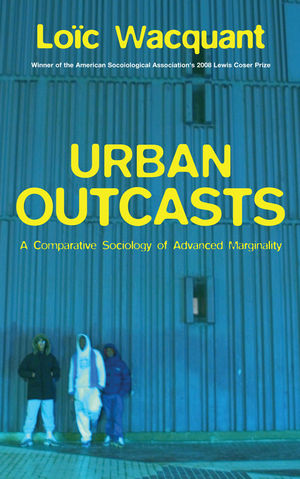Tagged: ubc geography
[Podcast] Vancouver: Consumption City Forever?
Part two of the conversation with urban economic geographer Elliot Siemiatycki about Vancouver’s future economic trajectory
On the program, the second part of the conversation with urban economic geographer Elliot Siemiatycki about Vancouver’s transformation from a productive city into a city of consumption, dominated increasingly by real estate and tourism. We discuss what the future might hold for Vancouver as a city of consumption – and whether it might be advantageous for the city to chart an alternative economic path forward.
Dr. Elliot Siemiatycki is a postdoctoral fellow at York University in Toronto, and he completed his PhD from the University of British Columbia in 2013. His PhD research examined Vancouver’s urban economic transformation over the last three decades in his dissertation – Consumption City: Precarious Labour and Capital in Vancouver, British Columbia.
[Podcast] Vancouver: Consumption City
Economic geographer Elliot Siemiatycki discusses Vancouver’s transformation from a productive city into a city of consumption
Never miss an episode! Subscribe to the podcast here to receive a weekly automatic download.
Above all, the many paradoxes of Vancouver’s contemporary economic development trajectory are exposed in the words of local workers, firms, commentators and industry experts: Vancouver is simultaneously the most livable and unaffordable city in the world; Vancouver is a leading creative city in which creative firms and workers alike struggle under conditions of precariousness; Vancouver is mythologized as a healthy, sustainable, lifestyle city while these very qualities often must be sacrificed by working Vancouver residents. Tracing the underlying story and challenges of Vancouver’s emergence as a global consumption city provides important insights into 21st century urban development. –Elliot Siemiatycki, PhD
On the podcast, urban economic geographer Elliot Siemiatycki discusses Vancouver’s transformation from a productive city into a city of consumption, dominated increasingly by real estate and tourism. We examine how the city’s structure, feel, and image of itself have shifted over the last three decades – and how the rise of precarious employment is implicated in this transformation.
Dr. Elliot Siemiatycki is a postdoctoral fellow at York University in Toronto, and he completed his PhD from the University of British Columbia in 2013. His PhD research examined Vancouver’s urban economic transformation over the last three decades in his dissertation – Consumption City: Precarious Labour and Capital in Vancouver, British Columbia.
[Podcast] Divisions and Disparities in Lotus Land: The Social Geography of Income Polarization in Metro Vancouver
UBC geography professor David Ley and geographer Nicholas Lynch co-authored a recent study, Divisions and Disparities in Lotus Land: Socio-Spatial Income Polarization in Greater Vancouver, 1970-2005. Nicholas Lynch presents the worrisome findings of the study, as we see an increasingly divided Vancouver and a disappearing middle class. He discusses the social geography of polarization across the region, the implications, and possible policy solutions.
Subscribe via iTunes to have the weekly podcast downloaded automatically.
[Podcast] The Production and Penalization of the Precariat in the Neoliberal Age (Part II): Transformation of the Ghetto
Subscribe via iTunes to have the weekly podcast downloaded automatically.
This is the second podcast of a two-part series (listen to the first part), focusing on the transformation of the ghetto and the emergence of workfare and prisonfare under neoliberalism.
On November 1st, 2012, Loic Wacquant gave a public lecture organized by the University of British Columbia’s Liu Institute for Global Studies and the Department of Geography. His talk is entitled, “The Production and Penalization of the Precariat in the Neoliberal Age.”
Loic Wacquant is professor of sociology at the University of California at Berkeley and a researcher with the European Centre of Sociology and Political Science in Paris. He is the author of many books and articles, including Urban Outcasts: A Comparative Sociology of Advanced Marginality, Prisons of Poverty, and Punishing the Poor: The Neoliberal Government of Social Insecurity.
[Podcast] The Little Mountain Victory: What Does It Mean?

Little Mountain blue banners. Courtesy of David Vaisbord. http://www.vaisbord.com
Subscribe to the podcast to have it automatically downloaded to iTunes or stream it below.
On October 25th, 2012, the Province of BC and the City of Vancouver announced that the four remaining tenant-households at the Little Mountain social housing development would not be evicted, and that up to 50 social housing units would be fast-tracked and built on a portion of the site. Previously, the existing tenants (in the remaining townhouse who refused to be displaced) were served eviction notices, despite the fact that site redevelopment had not even reached the rezoning stage (and construction completion was still years away).
On the podcast, The City evaluates the recent social housing victory at Vancouver’s Little Mountain and we reflect on the history of the struggle. We begin with an excerpt from UBC Geography graduate student Tommy Thompson, who conducted extensive research on Little Mountain and found that “through an analysis of the distribution of benefits and losses of redevelopment to various relevant groups, Little Mountain tenants are being squeezed out of the benefits of redevelopment while bearing significant losses.”
We then hear from David Vaisbond, a documentary filmmaker, who has thoroughly and intimately documented the history of the Little Mountain housing struggle. We ask him to reflect on some of the most profound moments of documenting this struggle. Finally, former MLA and Little Mountain advocate David Chudnovsky reflects on this victory and provides a history of the proposed Little Mountain privatization and redevelopment.
[Podcast] Chicago, Detroit, and the Evolution of the Occupy Movement
For half a century now, the top one percent of the top one percent have denied the right to the city, by confusing people that individual rights were all that mattered. They turned us all from citizens into consumers, and told everyone that you have the freedom to choose what music to listen to, what television shows to watch, what low-wage job to accept or what good job to compete against a hundred other applicants, what tiny basement suite or SRO to rent if you can’t afford anything better. But you’re told that when it comes to the true right to the city, you only get a few small choices every few years. And these choices will always have to get prior approval from the 1 percent, and the financial markets, and the real estate markets, before we’re even allowed to make any choice at all.
Demand more. Demand the right to the city. It belongs to all of us.
–Elvin Wyly (in an excerpt from To Claim the Right to the City, Turn Left)
Subscribe to the podcast to have it automatically downloaded to iTunes or stream it below.

Photo by Elvin Wyly (2010). Available at http://www.geog.ubc.ca/~ewyly/imaginer.html.
The urban Occupy movement began in September 2011, and it continues to evolve. On the program, urban geographer Elvin Wyly talks about the Occupy movement as collectively claiming a right to the city – a right to live in just cities that are socially and economically equitable.
We then speak with an organizer from Occupy the Midwest, which is a Detroit conference drawing people from midwest cities and beyond. We discuss the socio-economic contexts of Chicago and Detroit, and this regional Occupy conference as part of the evolution of the movement in a part of the country particularly devastated by neoliberal capitalism.
May 15 Podcast // Sustainability, Urban Development, and Class Conflict
On the May 15th podcast, I talk at length with UBC Geography’s Noah Quastel about his current and past research on the intersections of ‘sustainability’, political ecology, urban development, and class conflict, within the context of Vancouver.
In 2009, Noah authored an article published in the journal Urban Geography titled “Political Ecologies of Gentrification.” The article “explores the possibilities for a political ecology of gentrification. Gentrification research, while firmly rooted in materialist social science, has not yet broadened its interests to consider ecological aspects of, or the role in gentrification of, discourses, social movements, and state policies of the environment. Understanding the political ecologies of gentrification involves recognizing the ways in which material relations and uneven resource consumption, concepts of nature, and the politics of urban environmental management affect gentrification processes. New developments in Vancouver increasingly contribute to gentrification using languages of sustainability and green consumption in a process of ecological gentrification.”
May Day Podcast // International Workers’ Day // Social Polarization in Toronto
The May 1st podcast is available here. You’ll find coverage of International Workers’ Day activities in New York City and Vancouver, and the importance of class struggle and labour activism explained by prolific Marxist geographer David Harvey. In the second half of the show, The City discusses social polarization in Toronto with UBC Geography graduate student Liam McGuire. Liam’s mapping of the Ten Cities of Toronto is below. His research follows the work of University of Toronto’s David Hulchanski on the Three Cities within Toronto.
May 1 Show Preview // International Workers’ Day // Social Polarization in Toronto
On tomorrow’s May Day show, we will be discussing International Workers’ Day activities in Vancouver and growing social polarization in Toronto with UBC Geography graduate student Liam McGuire. His research follows the work of University of Toronto’s David Hulchanski on the Three Cities within Toronto.
April 24th Podcast // DTES Sequel 138 Condo Development Approved // Urban Soundscapes and Children’s Health
You can find the April 24th podcast here, and don’t forget to subscribe to the podcast and have it download to iTunes or your podcatcher automatically. In the first half of the show, Ivan Drury discusses the City of Vancouver’s Development Permit Board’s approval of the Sequel 138 condo project on the Pantages Theatre site (which was recently demolished and you can find photos here) and what this project means for gentrification in the Downtown Eastside. Details of the application are available here, and please note that they are provided by the developer. You can also see a letter signed by 30 academics (many specializing in gentrification and urban studies) in opposition to the development below this post. In the second half of the show, Iain Marjoribanks shares recent research on the effect of urban soundscapes on children’s health, contrasting the False Creek South and Marpole neighbourhoods.
GUESTS
- Ivan Drury, Carnegie Community Action Project
- Iain Marjoribanks, UBC Geography





